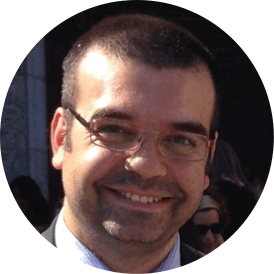Are scientists religious persons?
- Michael Panao
- 5 de nov. de 2016
- 3 min de leitura

It's easier to view a scientist as a philosopher than a religious person.
Why?
Because for many, religion is still that thing where people believe with no proof for it. And these "many" think we call this faith.
Seriously!?
Time to say: grow up.
Why?
Because considering faith as belief without proof is childish.
Faith is an act of trust in what can be known - with time, perseverance and sweating a lot - will be known.
Point one.
Second point, religion is living a life dedicated to the Truth. Some of us go deeper in that path and find the Ultimate Truth in God, others won't go that far, but I think this is the deepest sense of religion. Also, the etymology of the word in Latin is "re-ligare", re-connect. To what?
To the Truth.
A scientist dedicates his/her life to the Truth, finding explanations for the unknowns in this world, and opening more questions with every single good answer. When a scientist expresses the sense and meaning of his analysis, or interpretation of the results obtained, he is a philosopher. But all time spent doing science, for example, collecting data, he's also being religious because he's searching for the Truth.
It doesn't matter if the content of that search is a bacteria, an impinging droplet, an electric current, a chemical reaction, a line of code in computer modeling, shaking a test tube, assembling a peristaltic pump or the structure of an experimental setup. Every minute he spends with every detail of his scientific endeavor is a necessary moment to reach the Truth. A necessary step. This is being religious.
Usually we associate religion with spirituality. Thus, if every moment searching for the Truth is religious, is there any spirituality underneath what a scientist does?
What is spirituality?
My experience is that spirituality is not about what we cannot see, but instead it is a deeper dimension of reality accessed through contemplation. When a Catholic scientist is contemplating the Host in Adoration, he quests for an explanation to such mystery and is often reminded there are questions which are not scientific, but philosophical and theological. He is reminded of other methods besides the scientific one to reach the Truth. And this opens his scientific mind to what's beyond science, to the beauty and power of contemplation, of what is spiritual. Otherwise, we could become close-minded people, especially around the omnipotence of our opinion that science is the only way to the Truth.
For a scientist, being spiritual means he has to pray? What is prayer?
I think a good moment spent in contemplation is an excellent prayer. If we believe in God it's easier to understand the sense and meaning of contemplative moments and prayers, but if you don't believe, you can experience those moments as an opening of your whole being to the infinite imagination in the world surrounding you. Every pattern has a reason. First, we think it's physical, or chemical, but then with other disciplines like biology, or constructal theory, we see the "big picture". What seemed an infinite within a scientific field is found inside another infinite with deeper meaning. And if this movement from infinite to infinite continues where does it lead?

I don't know.
It's the reason we keep digging for the Truth.
It is why our research impels us to be contemplative, spiritual, religious.







Comentários